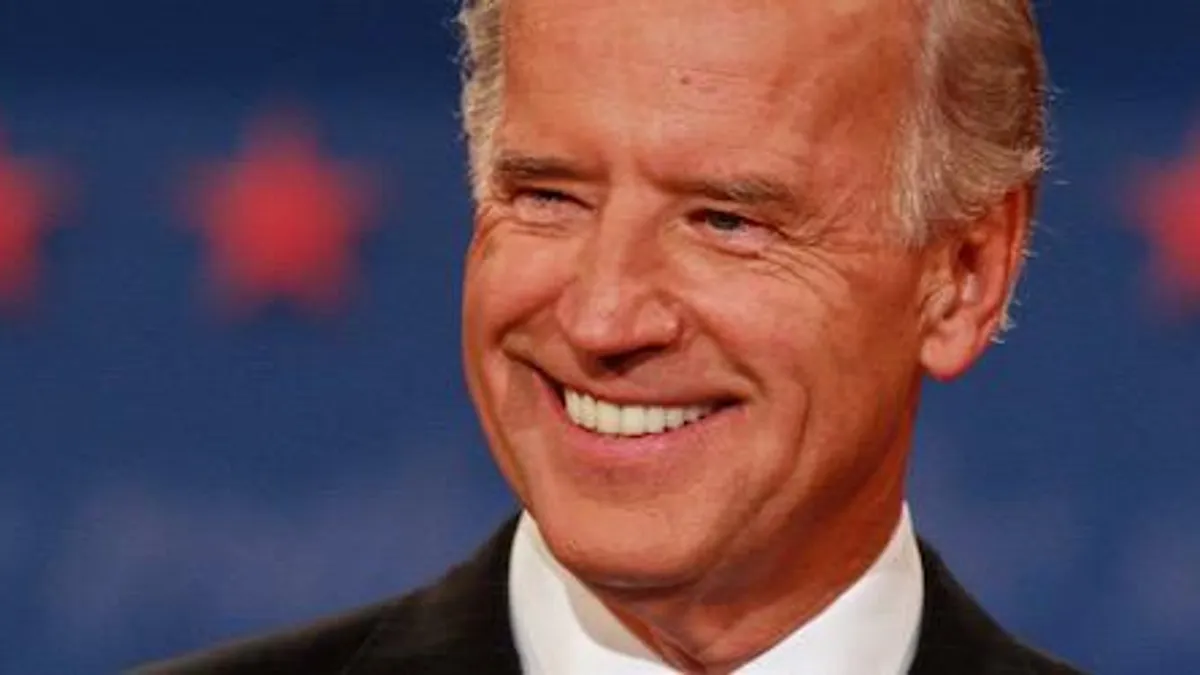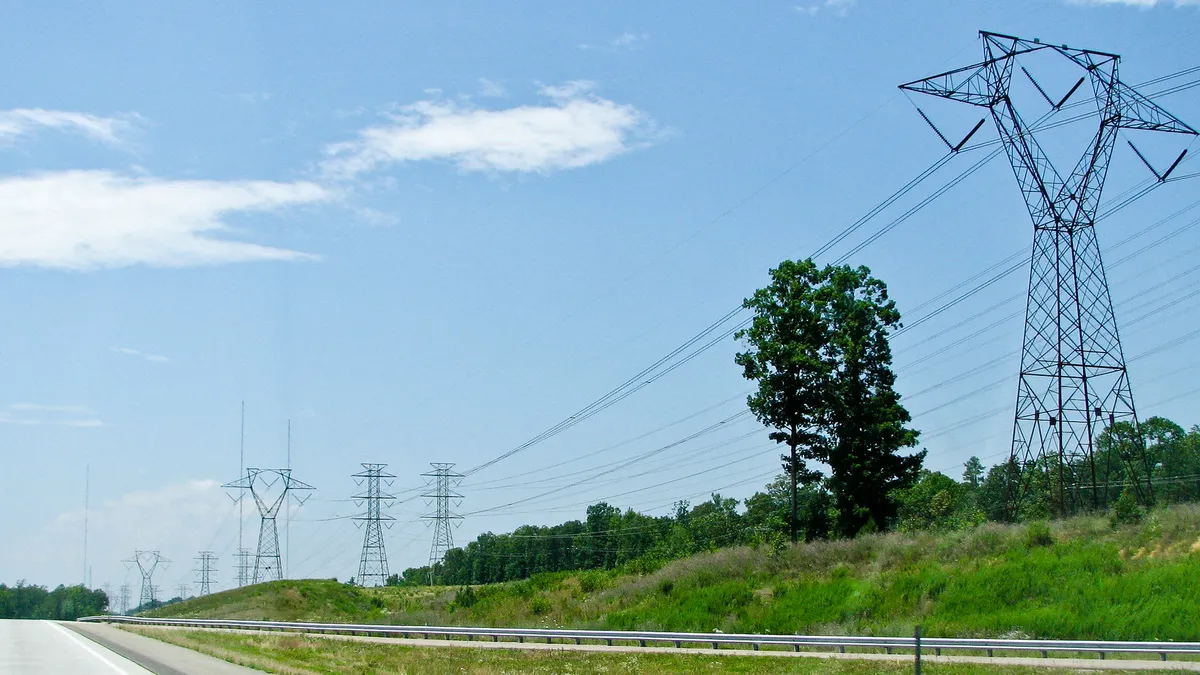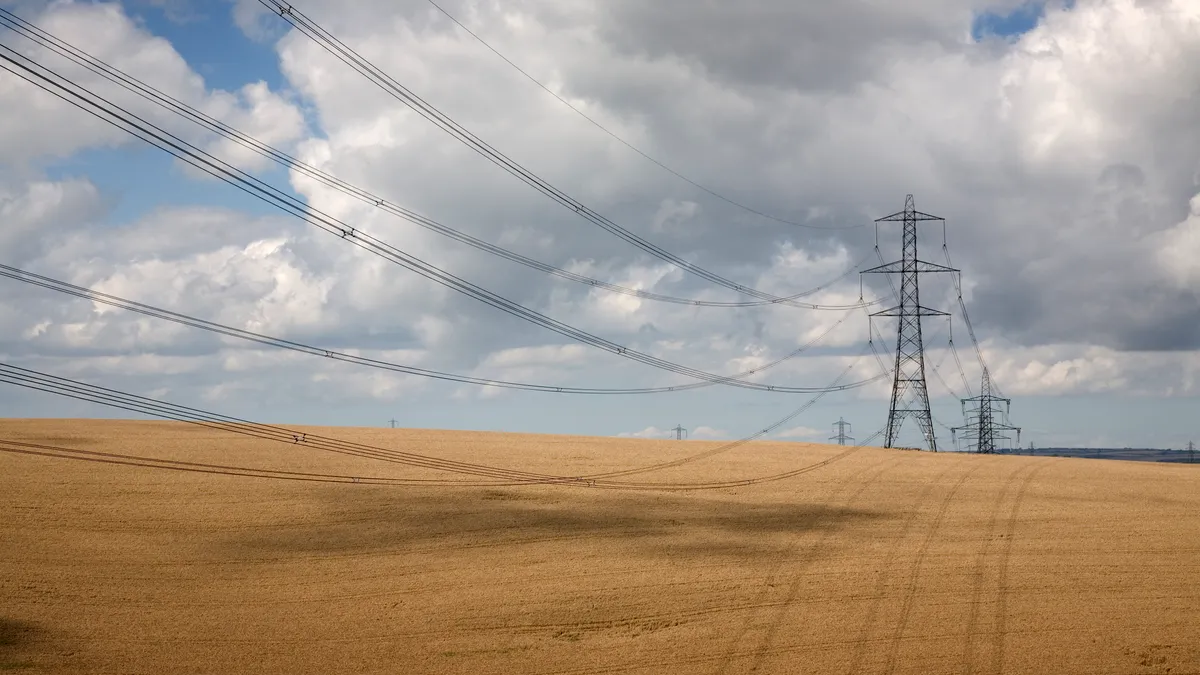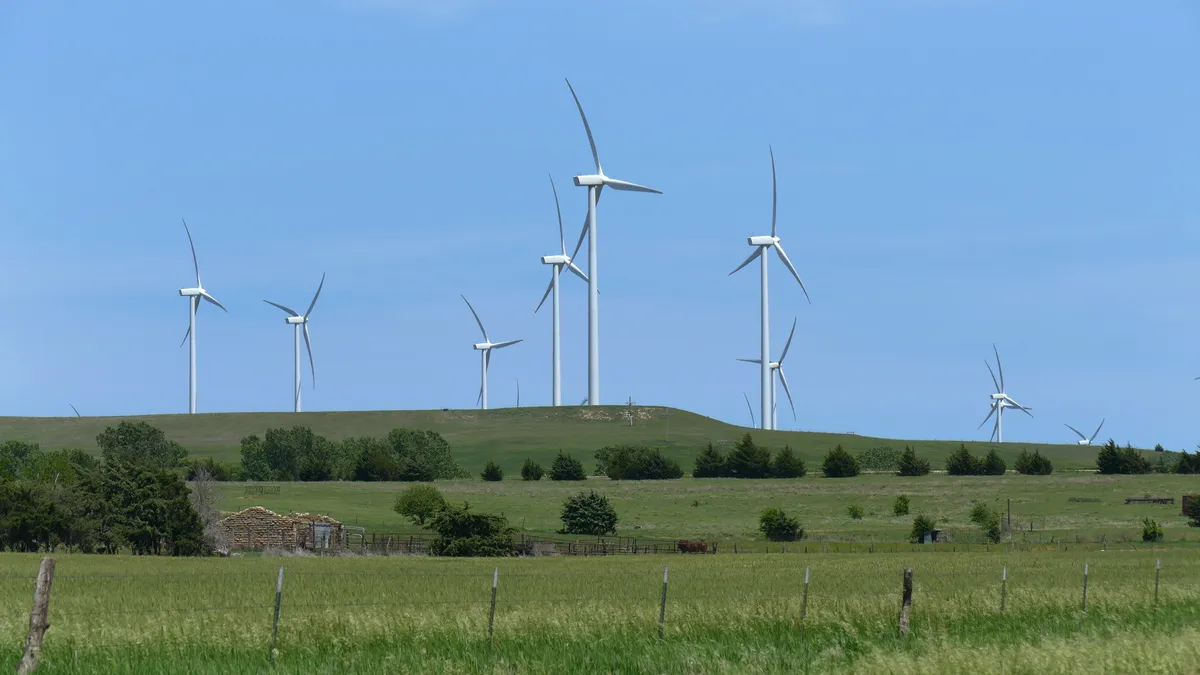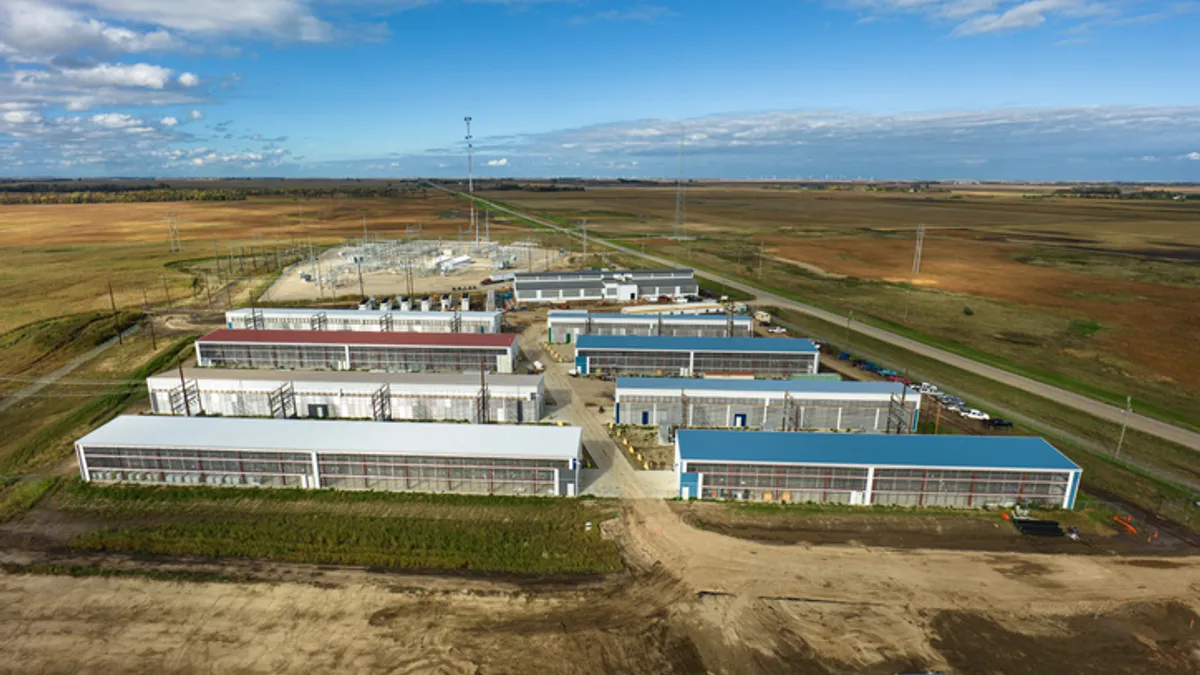Vice President Joe Biden extolled the future of renewable energy and took aim at intransigent utilities and climate change deniers yesterday when he addressed the Solar Power International (SPI) conference in Anaheim, California.
“We are on the cusp of something huge,” Biden told an audience of 4,000 at the conference considered the solar industry’s most important deal-making and innovation-unveiling conclave.
The most recent U.S. Solar Market Insight Report forecasts a boom through the end of 2016, a slowdown from 2017 to 2019, and then further expansion afterwards. The Department of Energy’s Wind Vision broadly envisions a similar pattern for wind power.
“If we stay at it, we can make it faster and more affordable for Americans to choose cleaner and more affordable energy,” Biden said.
Before addressing those who oppose the extension of solar’s vital 30% federal investment tax credit (ITC), Biden ticked off some of the more impressive numbers the renewables industries have posted under the current administration.
"Since President Obama and I took office — and put wind’s production tax credit in place from 2009 through 2012 and solar’s ITC in place from 2008 through 2016 — solar power has increased 20-fold, grown jobs 86% to 174,000, and is expected to get to 210,000 jobs by the end of 2015," Biden said.
The solar industry also now employs more veterans than any other part of the economy and plans to employ 50,000 vets by 2020, the Vice President added.
“That is helping us meet the sacred obligation of caring for those who have fought for us.”
With $90 billion invested into renewable energy since 2008, solar installations have increased almost 50% per year, from 20,000 in 2009 to a forecast 1 million in 2016. And there will be solar to power 4.6 million homes by the end of 2015.
Wind power has tripled its installed capacity and now can power 16 million homes, Biden said. Wind now provides over 73,000 jobs — more than the coal industry — and could provide over 600,000 “good, decent-paying jobs that a person can raise a family on” by mid-century.
The almost $20 billion U.S. renewables market is making renewable energy cost competitive with conventional generation, he added. The cost of solar fell by roughly 50% since 2010 from $0.151 per kWh in 2009 to an all-time low of approximately $0.037 per kWh this year.
“It was incredibly impressive to me that a senior official could speak about solar in such detail,” said Raymond Hudson, director of the highly-respected energy consultancy DNV GL.
“He was right about the price of solar and that it is on the verge of parity with coal and other traditional forms of electricity generation,” Hudson said.
The grid: Two-way flow
Hudson was also impressed by Biden’s ability to talk about the nationwide benefit that could come from enhancing the transmission and distribution system in support of renewables.
“Earlier this year, the Department of Energy (DOE) and the White House released a roadmap to make our entire energy infrastructure more reliable, resilient, safer, and more secure,” Biden said.“Our recommendation is to ensure the system can carry solar and wind energy from where they are produced to where they are used. The demand is there."
Solar has provided 40% of all the new U.S. electricity generation capacity in 2015, Biden added.
“One million workers now take care of our transmission and distribution infrastructure. If we make the right investments, we can support another 1.5 million jobs. The technology is there.”
Biden's presence at the conference highlighted the increasing importance of solar to the nation's fuel mix and economy, officials told Utility Dive.
“This is the first sitting executive to ever speak at a solar conference," said DOE Solar Energy Technologies Office Director Minh Le. "It shows that solar is here now and having an important positive impact, not just on pollution but also on economic growth and job creation across the economy."
What Biden was describing is the democratization of electricity, Le said. It's the first significant change in electricity delivery since Thomas Edison created the one-way flow of centralized power generation at his Pearl Street Station in 1882.
“With the two-way flow now possible, consumers have choice and they are forcing change on the utility sector,” Le said.
Challenges: 'The Koch brothers — fine guys as I understand it'
An energy transition “is within our reach – but there are challenges,” Biden said. “The private sector can only thrive with certainty in the investor environment and with free and fair competition.”
But utilities and utility associates are on the defensive. Biden used the net metering arguments taking place nationwide as an example.
“If I told you ten years ago there would be a debate about whether consumers have too much freedom to choose how much and what type of energy they generate, I doubt you would think that would happen," he said. "It is happening. Deep-pocketed special interests that have lobbied for years for fossil fuels are now saying ‘Let’s take away consumer choice. Let’s stifle the market.’”
He named the special interests blocking extension of the ITC and fighting solar on other policy issues.
“The Koch brothers — fine guys as I understand it — and groups like the American Legislative Exchange Council, have successfully argued for limits on the amount of net metered systems, like in Wisconsin. They are pushing back against change at every level, trying to alter how the market functions.”
While these fossil fuel-funded special interests contest allocating critical incentives like the ITC to renewables, they defend over $5 billion in tax credits to the oil industry, Biden asserted.
“At one point, that arguably made sense ... but is anybody having a problem getting oil out of the ground today?”
Just half that unnecessary tax benefit would cover what renewables need, Biden said, and "there would be $2.5 billion left to reduce the deficit and invest in things people need.”
Even so, Biden acknowledged twice throughout his speech those hardest-hit by the coal industry's demise, and described a "moral obligation" to take care of the coal miners. There will be winners and losers in the energy transition, the Vice President said in his short speech.
"We have to take care of the hardworking losers in industries like coal mining that aren’t going to thrive," he said. “That is a moral obligation. But that is not a reason to continue a policy so damaging to our environment.”
Yet climate change deniers continue to throw up roadblocks to constrain the administration’s ability to act. “If you push them, they would probably deny gravity,” Biden joked.
One such limitation, Biden said, is the budget that the Republicans recently passed, which slashed funding for the renewable energy and energy efficiency office of the Energy Department by 40%.
“They also doubled down on policies that devastate scientific research and development budgets. What are we doing?” he asked. “We are getting in our own way. Get out of the way.”
Let the will of the people and of the market prevail, Biden added.
“The idea that we won’t do everything to grow the renewables so critical to the future of this country is absolutely absurd," he said. "Our grandchildren will look back and ask what we were debating about. The stakes are too high for shortsighted politics and short term decisions.”
The Clean Power Plan's moral obligation
Biden described the intent of the administration’s Clean Power Plan. Beyond limiting pollution from power plants, Biden said the plan “builds our communities’ resilience to climate change by investing in more resilient roads, bridges, water systems, and buildings that can withstand future wildfires, floods, and superstorms.”
The administration also targeted another doubling of renewable energy capacity by 2020, underscored that commitment with the announcement of a new $102 million grant fund for renewables coinciding with Biden’s speech.
“That is how we have always grown the economy,” Biden said. “If we step up and capture this energy transformation, we will create a virtuous cycle of good paying jobs and attract companies to our shores.”
Even those who resist investing in renewables will benefit from a cleaner environment and a stronger economy. It is no longer wise to think in any other way, Biden warned. Major companies have begun pricing the cost of carbon into their business decisions. Google prices it at $30 per metric ton and Disney puts it at $10 to $20 per metric ton.
“I wouldn’t go long on investments that lead to carbon pollution," Biden said, "and I would bet on clean energy.”
When he introduced Congress’s first climate change legislation in 1986, Biden promised that reality has “a way of intruding” and that is what today’s extreme heat waves, superstorms and droughts are.
“If we are lucky and work hard, we might freeze things as they are now, but we have a long way to go," the Vice President said. "If we move now, we can cauterize this wound, but we have to move fast.”
America’s biggest assets
The U.S. has assets that will support its race toward confronting climate change with renewable energy, Biden said.
The first is the consensus among the American people to invest in renewables, “notwithstanding the minority that has been able to stop action so far.”
The second is the most advanced scientific and technological skill set in the world.
“We know how to ‘think different,’” he said, quoting Steve Jobs’ advice for success. “American children don’t get criticized for challenging orthodoxy. It is stamped into our DNA.”
The third is an economic system that accommodates change quickly and “the most agile venture capitalists in the world,” Mr. Biden said.
Finally, there is the ability to solve consequential problems.
"I recently gave Chinese leaders a one word definition of this country, he said. “Possibilities.”
Biden believes that word underscores the American people's philosophy.
“We explore, we invent, we build, we break down barriers. We never stop. If there is any group of Americans that I don’t have to explain this to, it is you in the solar industry. So thank you. And keep it going.”


